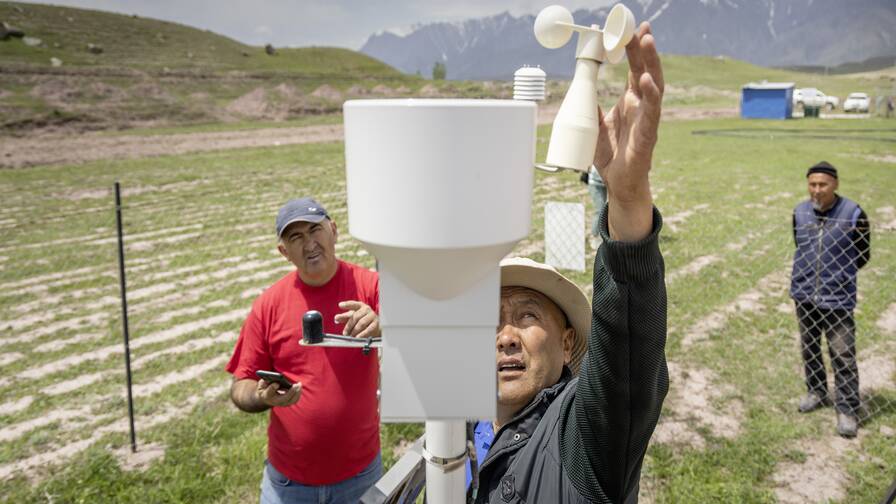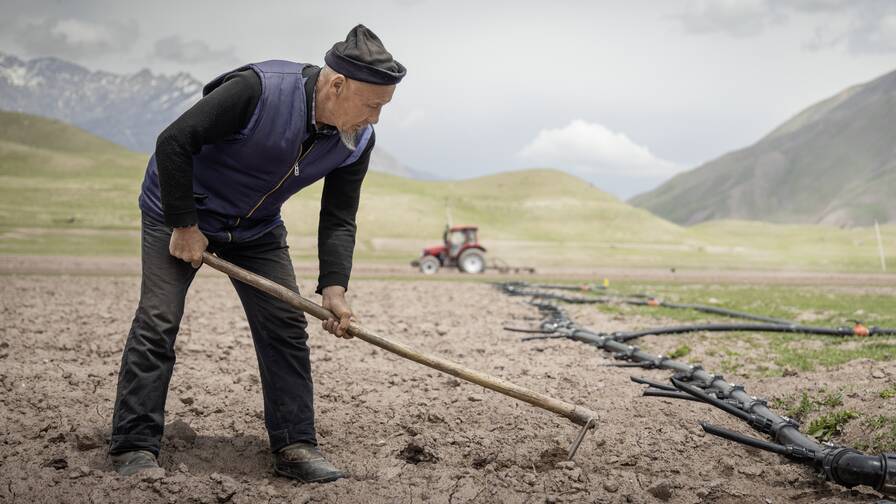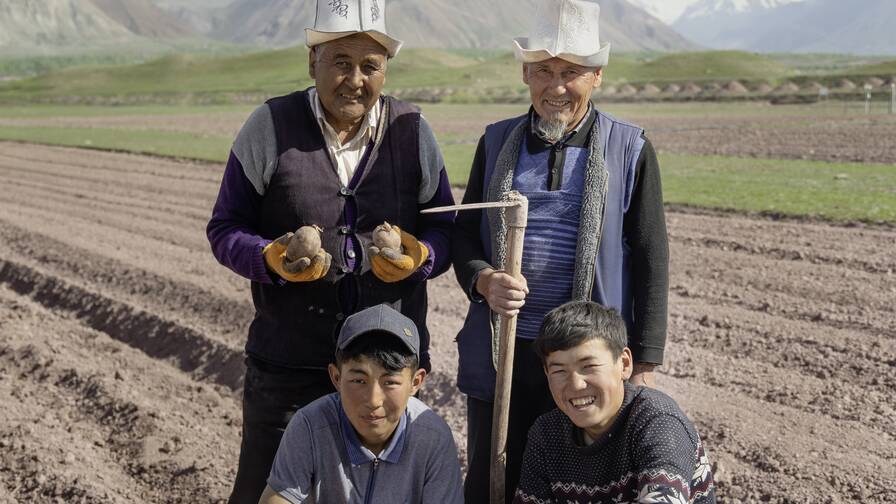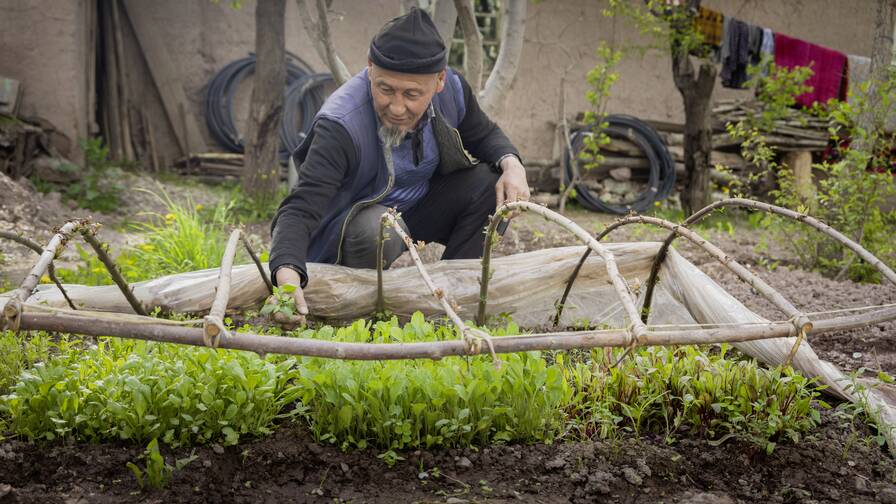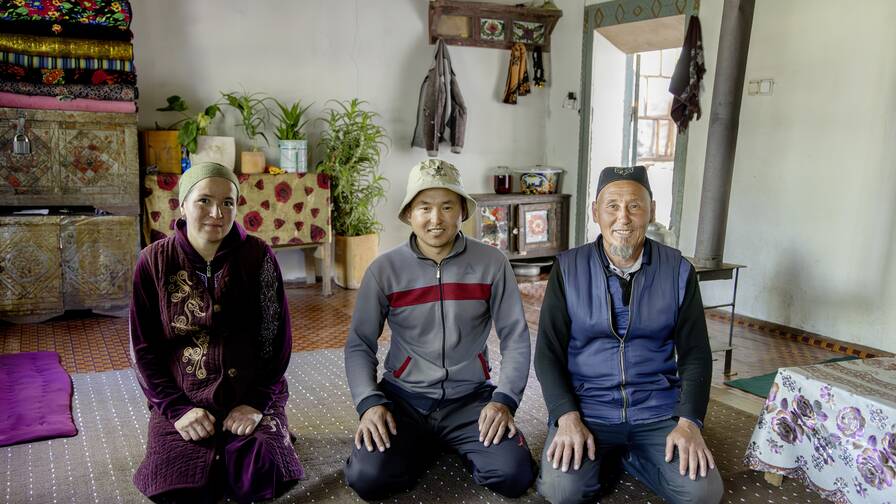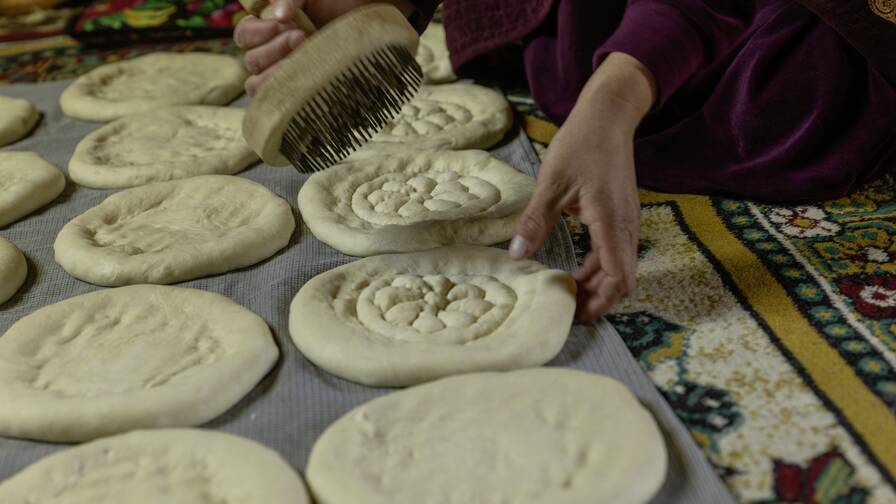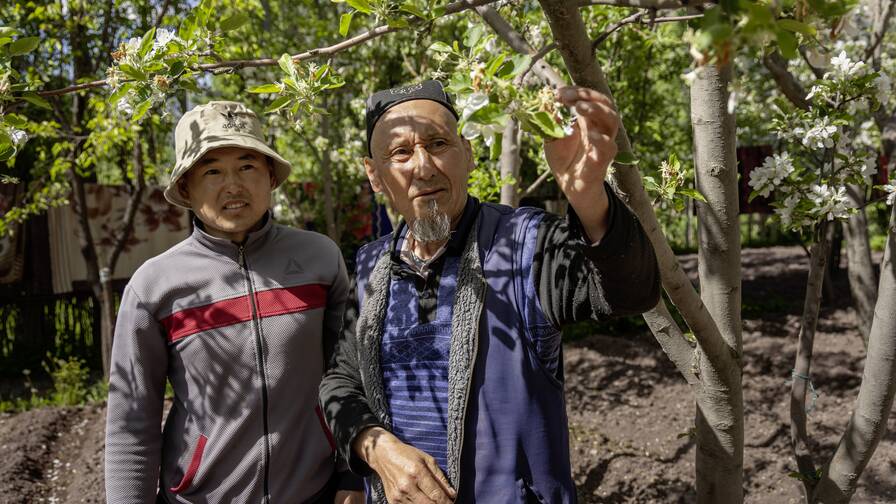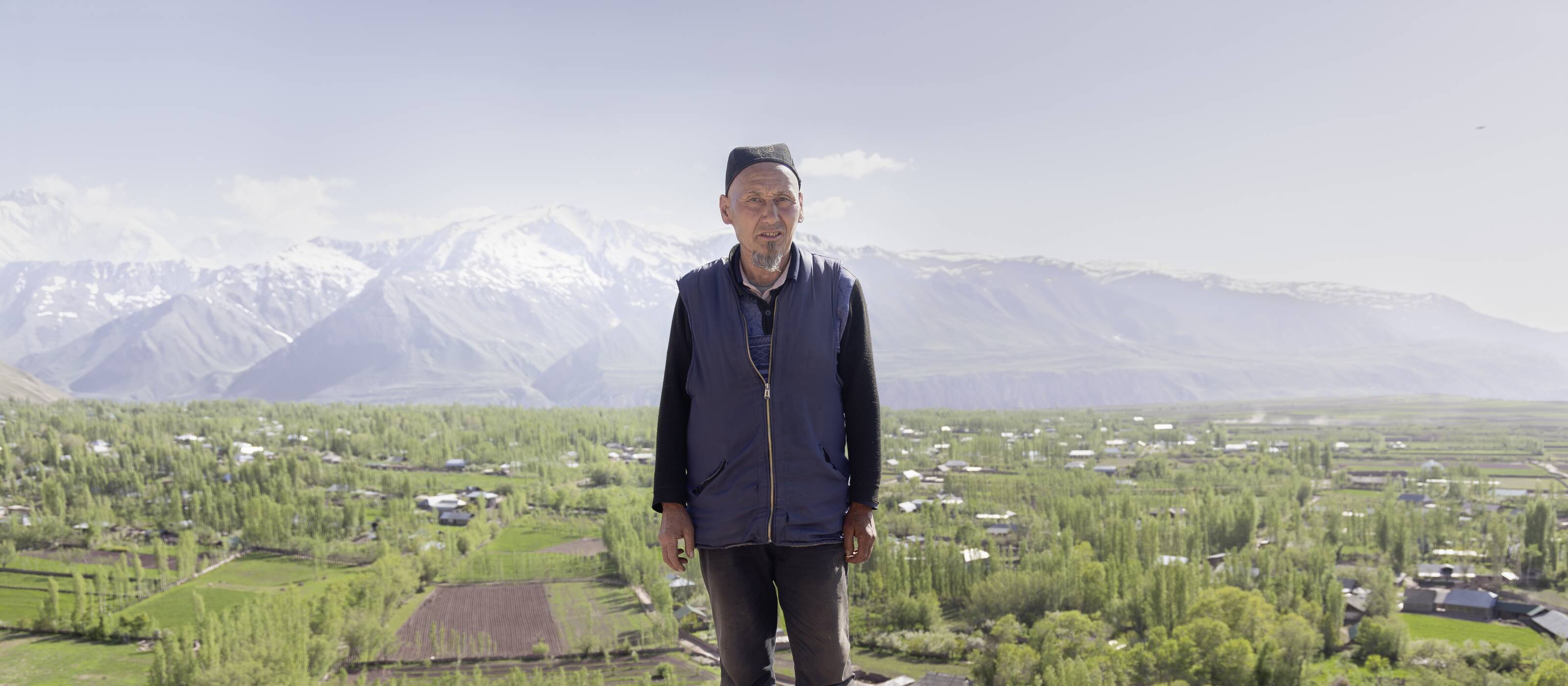

Shokirjon Shamirov (60) from Tajikistan
Shokirjon Shamirov kneels in the small field in front of his house in Shirinob and digs in the ground with his hands. He spends the hours before midday in his kitchen garden tending to his plants. There is a lot to do as it is high season. For him and his family, the garden is indispensable. As self-supporters, they depend on a bountiful harvest.
After lunch, Shokirjon sets off by bike to the Caritas project fields. He is one of 25 farmers who cultivate various Caritas fields. New types of vegetables and irrigation systems are tested on these fields, and farming practices are optimised. This is important because conventional agriculture is becoming increasingly difficult in the region.
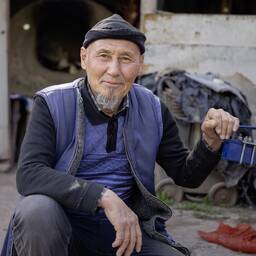
«Before I became part of the Caritas project, I was a siple potato farmer. But the harvest was not good.»Shokirjon shamirovfarmer
Surrounded by mountains
Shirinob lies at almost 2'000 meters above sea level at the end of the Rasht Valley, surrounded by Tajikistan's highest mountains.
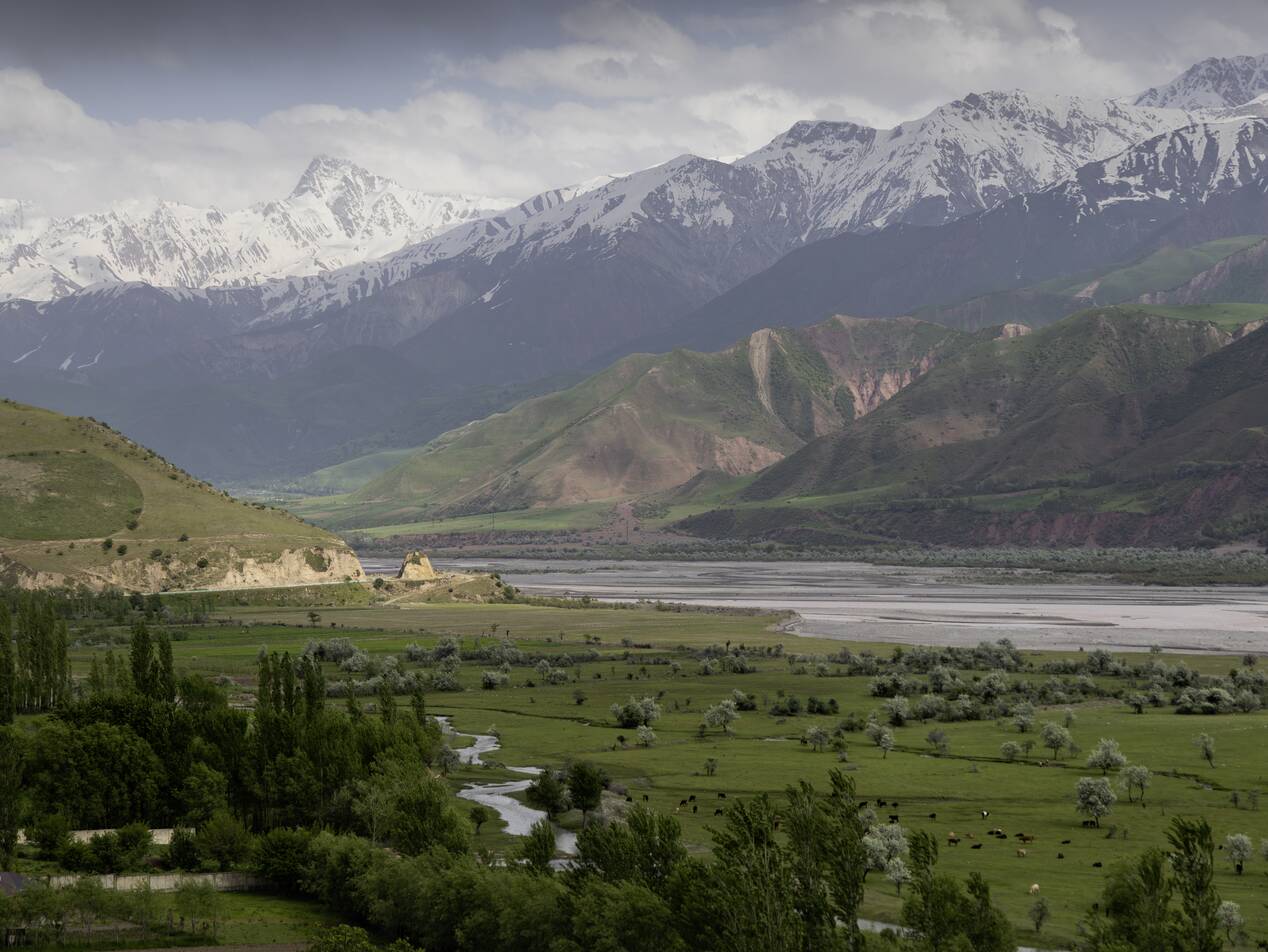
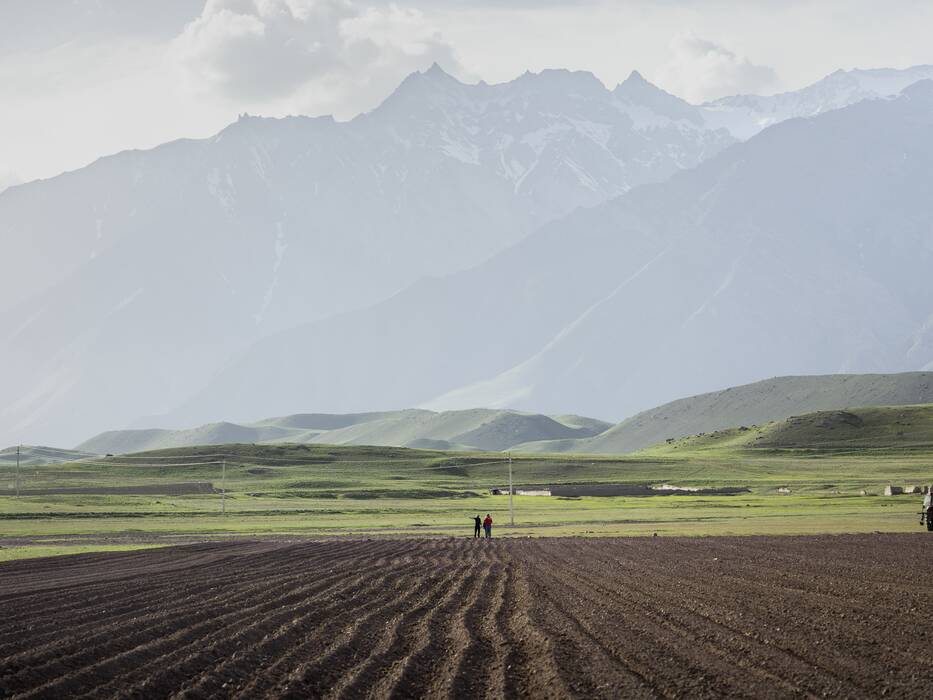
The climate changes rapidly and frequently
Climate change is having severe consequences in countries in the Global South. This is also the case in Central Asia, where Tajikistan is located. The weather is becoming more and more unsettled, the soil drier and the seasons shift. These changes are affecting Shokirjon Shamirov and many other people in the area. Most live from agriculture.
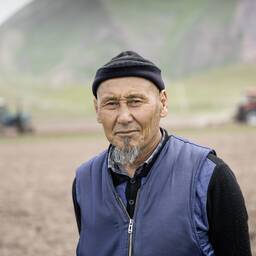
«As farmers we are completely dependent on the weather.»
Conventional cultivation methods, which Shokirjon Shamirov and other farmers in the Rasht Valley practice, hardly hold up under these circumstances. «Our main concern here is the water supply», says Shokirjon Shamirov. There is never enough water for everyone and it has become more difficult to till the soil.
The irrigation-intensive growing of potatoes poses particular challenges for Shokirjon. Potatoes are an important source of nutrition and income. But the yields have been declining for years. Together with Caritas, the mountain farmer has been following innovative paths since spring 2021 - with success.
Reliable weather data for the first time
Almost two and a half years ago, Caritas Switzerland, in cooperation with various partners such as MeteoSwiss, installed a weather-water-climate service (WWCS) and has been continuously expanding it ever since. To date, 64 simple and cost-efficient weather stations have been set up in Lakhsh District, where Shirinob is also located, as well as in eight other regions of Tajikistan. Another 100 will follow by the end of the summer.
The stations collect valuable data such as air temperature and humidity, wind and soil temperature. This information is automatically evaluated and processed by a system developed for the project. For the first time, farmers have access to reliable weather data. Some of them even have their own little weather station in the garden.
Thanks to the weather-water-climate service, Shokirjon finds out via SMS when the soil temperature is optimal for sowing, whether he has to reckon with extreme temperatures (heat or frost) or natural hazards, or whether it is the right time for watering. «I can now use the little water that is available more efficiently», the farmer tells proudly.
Finally, chickpeas and mung beans are thriving
The weather data also serves as the basis for all activities on the test fields. Together with the agronomists from Caritas Switzerland, Shokirjon and the 24 other farmers are growing new types of vegetables and legumes on the various plots. Soils can recover through crop rotation and diversification.
As a supplement, a water reservoir with an irrigation system was recently installed near the test plots. The farmers now irrigate a field depending on the soil moisture and the growth stage of the plants, and only when they really need the water. The first results of the system are very promising.

«The project changed our life for the better. Today we know how to harvest more with less water. Also, we are able to successfully grow other crops such as chickpeas, corn and mung beans.»
The entire region benefits from new knowledge
Through our activities in Tajikistan, we support various population groups in adapting to the climate and securing their livelihoods.
In the Rasht Vally, more and more women have been taking part in agriculture since the activities began. In ten women's groups, around 60 women cultivate their own fields and contribute to the household income. Caritas advises them on questions and provides them with helpful knowledge about farming through training courses. The increased involvemet of women in agriculture not only contributes to the better supply situation for families, but also strengthens women in society.
The farmers involved in the projects pass their knowledge on to people throughout the region. A total of over 700'000 people in nine districts are benefiting from the project. In the future, even more people will benefit from the weather data. For example, shepherds can use the information because they sleep under the open sky and are just as exposed to the weather as the farmers.
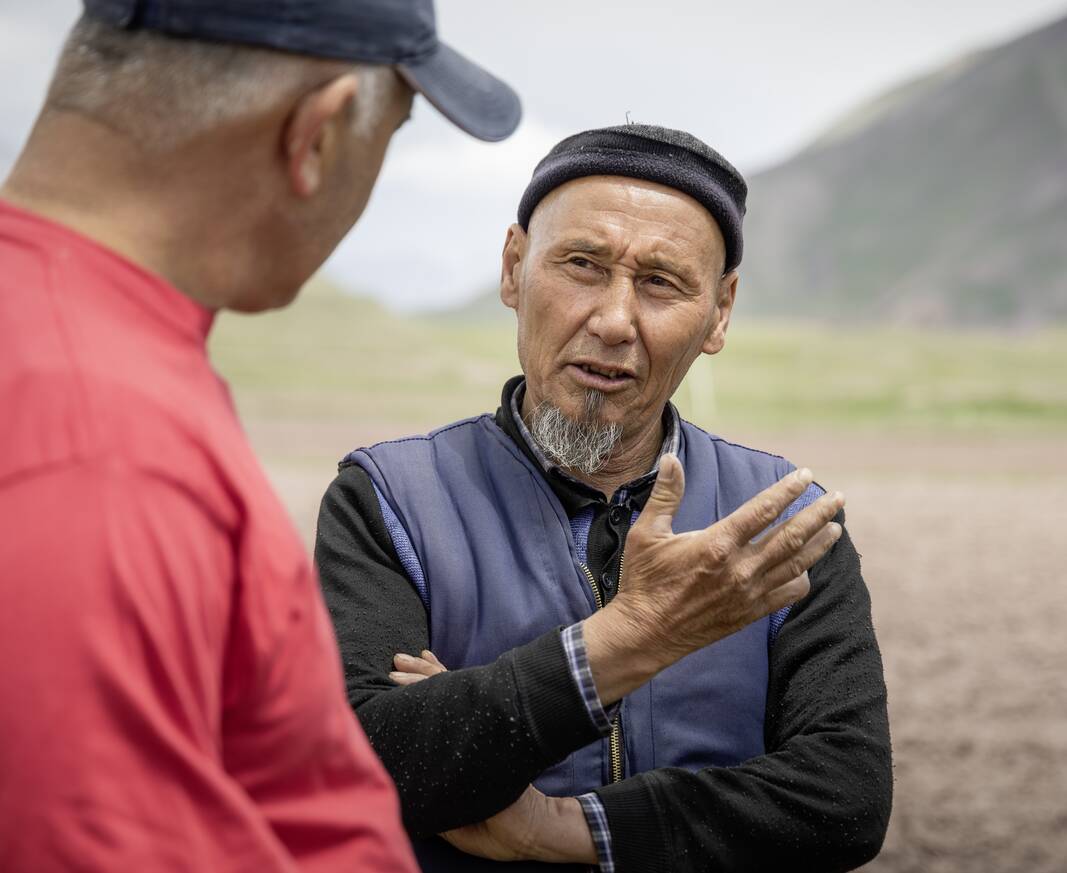
Work with the weather
With various actions we can support people affected by poverty, like Shokirjon Shamirov, in adapting to climate change. Your donation is real help for self-help.
Further Information
Header image: Shokirjon Shamirov on a hill in front of his home in Shirinob in Tajikistan. © Reto Albertalli
